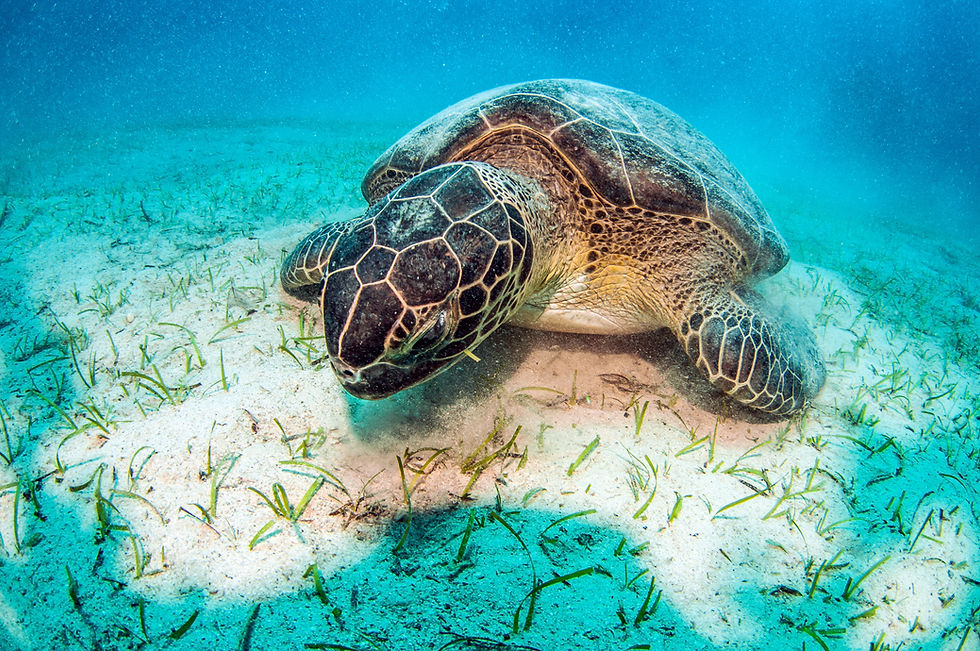This post was originally written by Robb Ianelli for Oceanworks
The natural world exists in a perpetual, delicate balance. There may be no better example of this than its oceans and their mind-bogglingly diverse ecosystem of creatures and plants.
Mankind’s impact on these underwater wonderlands is vast and complex as well. But some problems our species have caused are all too obvious. Take the case of ocean plastic and sea turtles.

A species in crisis
While many ocean dwellers have suffered dire consequences from a plague of plastic pollution that spares nothing in its sphere, sea turtles have been particularly negatively impacted by the scourge of ocean plastic.
These animals are already in crisis in many coastal communities due to rampant hunting and egg poaching. But sea turtles are also susceptible to many of the ills plastic pollution can bring to the marine environment. They’re also ill-equipped to cope with the staggering increases in ocean plastic plaguing their natural homes.
Many may already be familiar with gruesome images of sea turtles that have consumed plastic pollution. It turns out this isn’t merely a case of uneducated, opportunistic foraging for food.
Researchers have found that plastic debris in oceans releases dimethyl sulfide, the same exact chemical produced by phytoplankton, which is a primary food source for sea turtles. These creatures aren’t swallowing ocean plastic because they’re attracted to its colors or convenience—it literally smells like their normal food!
This problem is exacerbated because sea turtles spend most of their time in nearshore locations such as bays and lagoons. These locations are even more likely to be inundated with plastic debris entering the ocean from both waterways and trash being blown into the water via gusts of wind or discarded from ocean vessels.
Plastic can also disrupt sea turtle breeding and nesting routines. The beaches where sea turtles nest can be littered with plastic, making it more difficult for parents and hatchlings to navigate, as well as impacting the development of eggs.
And, of course, when sea turtles are swimming they can easily become entangled in ocean plastic, particular abandoned fishing nets. Plus floating plastic bags look an awful lot like jellyfish—a primary food source for some sea turtle species.

Dwindling populations
Sea turtles were once a populous species in our oceans and seas. The Caribbean was home to well over 30 million of them before European explorers entered the picture. But once they arrived, sea turtles became a popular food source to fuel those forays into the New World. Their meat and eggs fed sailors and settlers, who were simultaneously destroying their natural habitats and nesting grounds.
Today, the sea turtle population is close to 10 million than 30 or 40 million, and mankind’s assault on their existence has extended beyond consumption and neglect. The preponderance of plastic waste streaming into their environs and tempting sea turtle appetites may soon be insurmountable for the species to sustain its already dwindling ranks.
Some species, such as the Eastern Pacific leatherback, could face extinction within a decade if the tide isn’t turned after losing 90% of their population during the past thirty years.
Of course, sea turtles aren’t the only animals negatively impacted by ocean plastic. From seagulls to whales to seals, this insidious invader of the seas is causing havoc and destruction in its wake. And this only adds to other threats to the marine ecosystem such as rising water temperatures and overfishing.
Turning the tide
While we can’t eliminate all ocean plastics, there’s still ample opportunity to reduce its volume and minimize its impact. That’s why Oceanworks and our partners are committed to keeping plastics from reaching the oceans and recycling what we can.
We also believe education is an essential tool in building awareness of this critical issue and stemming the flow of plastic debris into our planet’s waters.
Interested in getting more involved with the sea turtle preservation community? An excellent organization is the Loggerhead Foundation in Palm Beach County, Florida.
And if your business produces products using plastic, you can do your part to reduce plastic pollution, reinforce your commitment to sustainability, and shorten your supply chain by sourcing recycled ocean plastic from one of our Marketplace partners.

Comments